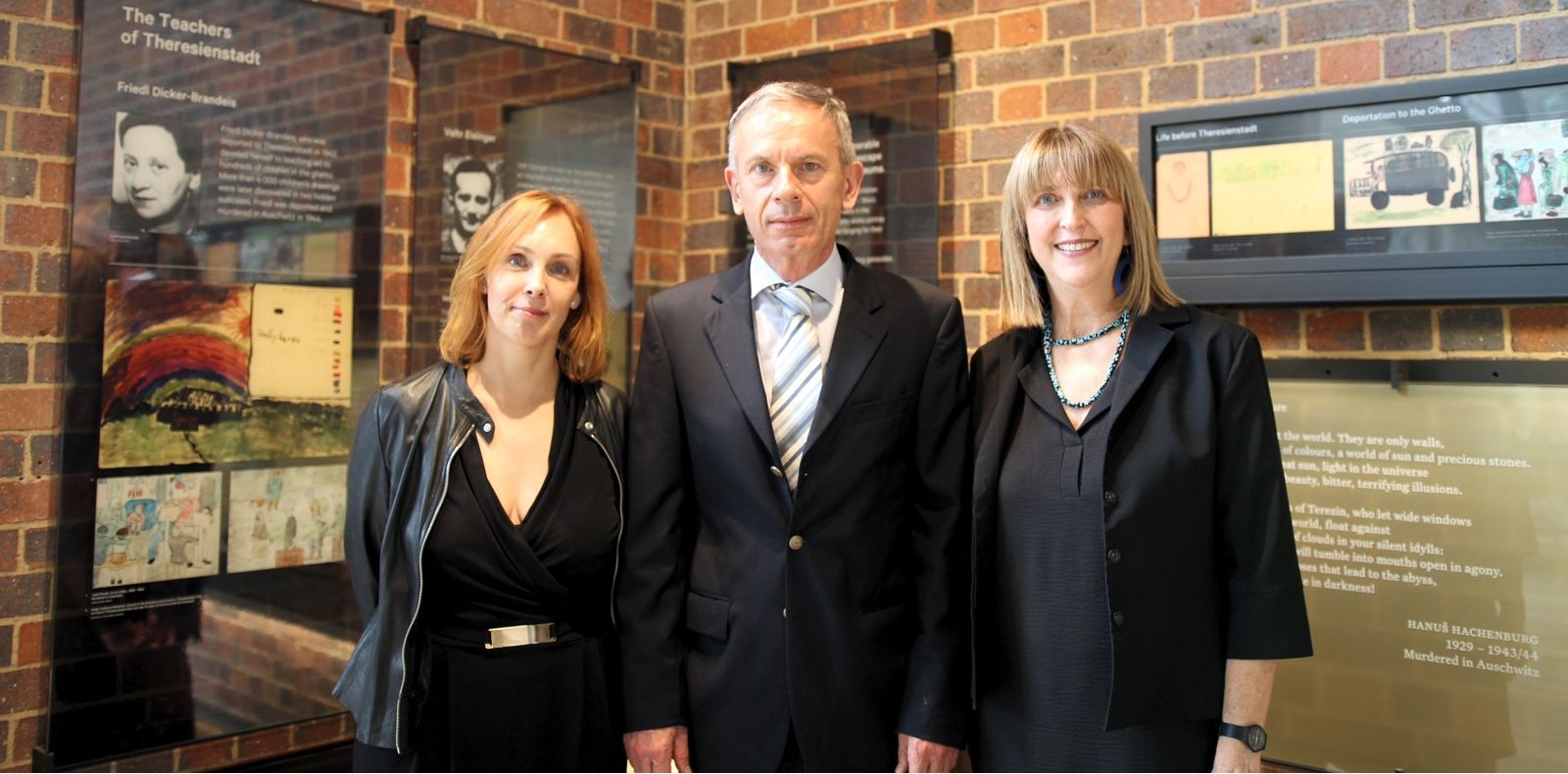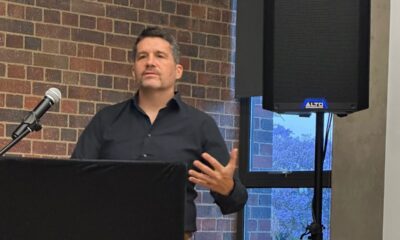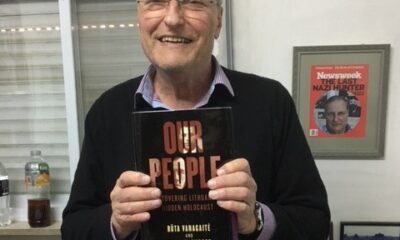
Holocaust

Honouring ‘ordinary’ Czechs who saved Jews
“In today’s world, shining a light on those who risked their lives to save others is important,” said Tali Nates, the director of the Johannesburg Holocaust & Genocide Centre at the opening of the temporary The Righteous Among the Nations exhibition.
Many of those honoured in this exhibition at the centre, which opened on 29 September and is running until January 2025, were ordinary people who risked their lives to save other ordinary people and haven’t received acknowledgement or recognition before. The exhibition, in collaboration with the embassy of the Czech Republic in South Africa and Yad Vashem in Jerusalem, focuses on 17 of the 30 000 righteous among the nations.
It homes in on ordinary people doing extraordinary things, no matter how many they were able to save from certain death at the hands of the Nazis, according to Nates. It also walks us through the history of the Shoah, tells the stories of those who risked their lives, and provides local responses to the persecution of Jews in Europe.
Dr Zuzana Pavlovská, Prague’s Jewish Museum’s head of education and culture department, said that in her years of researching the role of rescuers in World War II, many of those who today are revered as righteous among the nations “were just ordinary people who never spoke of what they did”.
“That’s why it’s not easy to trace these people,” Pavlovská said. “I believe many are still not known. This exhibition represents a selection of those who have never before been honoured. They just helped when help was needed.”
Pavlovská told the story of Přemysl Pitter, a Protestant preacher, writer, social worker, and pacifist who founded Milíč House, which secretly became a centre of support for persecuted Jewish families in Prague during World War II. Pitter provided families with food and other necessary items. After the war ended, he organised Operation Castles, in which he and his colleagues provided health and social care for surviving children from German concentration camps as well as those from Czech internment camps. He saved 810 children, and was recognised by Yad Vashem in 1964.
She also spoke of Milena Jesenská, a Czech journalist and writer, who was also one of novelist Franz Kafka’s girlfriends. When a flood of Jews fled to Prague in 1938, she and her friend, Count Joachim von Zedtwitz, convinced their Jewish friends to escape to Poland and head west. She and Zedtwitz devised an escape route in order to smuggle out their Jewish compatriots. She housed Jewish refugees in her apartment in Prague, and helped many escape to England. Jesenská was arrested on 11 November 1939 and was sent to Ravensbrück concentration camp. She died there on 17 May 1944, three days before D-Day. She was recognised as a righteous among the nations in 1944.
Then there was Vladimir Vochoč, who served as Czechoslovakia’s consular official in Marseilles between 1938 and 1941. Pavlovská said Vochoč helped hundreds of French Jews escape from France by providing them with Czech passports. Vochoč later ignored the request from the German consul general in Marseille for the consulate to be handed over to the Germans, and instead joined the Czechoslovak resistance.
Between 1938 and 1941, he enabled hundreds of Jews to escape from France by providing them with Czechoslovak passports. His actions were linked to a rescue operation organised by United States journalist Varian Fry. While Vochoč issued a passport to anyone proposed by Fry, Fry financed the printing of the false documents. They are believed to have saved about 2 500 people. By issuing passports, Vochoč enabled several thousand refugees to escape via Spain and Portugal.
In December 1949, he was dismissed from the service of the foreign affairs minister in Prague but continued issuing documents to provide practical support for refugees with all kinds of daily needs. He was recognised as a righteous among the nations in 2016.
Pavlovská went on to say that people who became righteous among the nations were from so many backgrounds, ranging from psychiatrists to farmers to circus performers to lawyers and diplomats, reformed thieves, teachers, foresters, postal workers, and so much more. They lived all over Europe, not just in Germany, Czechoslovakia, Poland, and Hungary, but also Denmark and Greece. Many of them were imprisoned for their selfless acts, and often died in concentration camps.
One such person was Antonín Kalina, a pre-war member of the Communist Party. Kalina was arrested by the Nazis in September 1939, and was incarcerated for six years in Dachau and Buchenwald. He found all sorts of ways to make life easier for prisoners and save them from certain death. He oversaw a special barricade for Jewish children and youth in Buchenwald in 1944, where he became the block 66 elder. He did all he could to have children between the ages of four and 18 placed there.
Kalina went to extraordinary lengths to ensure the children’s survival. With the help of another prisoner, Jindřich Flusser, he changed the boys’ Jewish names to Christian ones and told them never to say they were Jewish. He provided them with beds, blankets, clothes, and above all, better food. With the help of many other prisoners, he managed to save the lives of more than 900 children. He was recognised as a righteous among the nations in 2012.
Czech Ambassador Tomáš Uličný said at the event, “We sometimes overlook those who risked their lives to protect others from arrest, deportation, and death in concentration camps. This exhibition honours the brave Czech men and women who stood on the right side of history during a time of terror and injustice. Their courage has been remembered through the right wisdom of the nations.”
Uličný said their legacy continued in the Czech Republic, and mentioned a personal connection to them. He lives near a small village in the South Moravian region where Oskar Schindler had his factory, through which he was able to save 1 000 Jewish men, women, and children.










